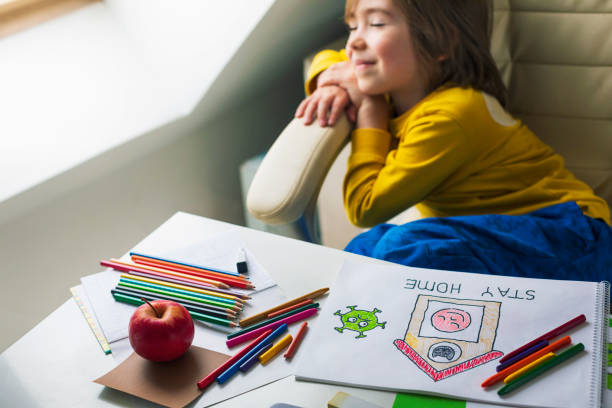
We are once again in the midst of school holidays. Before the pandemic, parents and caregivers would have been busy planning holidays, day trips, play dates, or visits to friends and family.
A significant number of us, however, are still in lockdown. We live with restrictions and work from home.
Many parents feel burned out by trying to manage remote learning while working.
I am an educational researcher who has a long-standing interest in how creativity can be blended with learning experiences for children.
Here are some suggestions to help you and your kids reconnect with each other after a long school year.
Try some conversation starters — you might be surprised what comes out
Remember your memories of childhood. Your favorite childhood memories are likely to be less about grand gestures and more about the moments you shared with your parents or caregivers.
It’s possible to find new ways to build a positive relationship with your lockdown team.
Try experimenting with conversation starters. You can do this while on a walk, when you are throwing a ball, or at the dinner table.
Give your child language to describe their experiences to help them to develop self-esteem.
You may want to discuss experiences that you’ve had recently, today, or since the lockdown started. Here are some sentence starters to get you started:
- I enjoyed …
- In the future, I would like to try…
- What if you could…
- I am looking forward to…
- When such-and-such occurred, I felt…
Try it. It may feel awkward at first. You might be surprised by what you learn once you start talking to your child.
Discover new ways to express positive emotions.
Positive emotions are contagious. Find new ways to spread positivity, such as:
- Each person can say three things for which they are grateful at dinner or on a family outing.
- Make a list of small pleasures (like an enjoyable dish or a garden in your locality that you enjoy walking by). Lists can be kept in a prominent place like the refrigerator and added to over time.
- Try a random kindness. Send a card or postcard to someone you know. You could also write a thank-you note to a local business or teacher.
- Celebrate your daily achievements. Try to teach your child something new, try to form a book club, and read the same book with them.
You don’t need to force positivity on children. We must also allow children to express their sadness and stress.
Nature is accessible even in cities
Even a brief contact with nature can improve mental health.
You can find nature in even the most urban settings. You could:
- Try mindful walking with your children, where you intentionally notice what’s around you. (No earphones and devices).
- Take a trick from the meditation practice, and list five things that you see, four that you hear, three of them you feel, and two you smell. Imagine it as a sensory “scavenger” hunt to do on your walks. You might even notice something new.
- If it’s permitted, take a picnic in your local park. Remove your shoes and let your toes feel the grass.
- If you are subject to a radius of lockdown, take out a map and examine it closely. You may not have visited a certain park or street. It can be incredibly exciting to discover new places to walk.
- If you have a yard, take advantage of it. Build a fairy home, a fairy garden, or a fairy house using found objects. Cook outside. Set up a tent.
- Plant something — flowers, herbs, or anything else — in a balcony pot or indoor garden. Then, watch it grow. Take photos of your progress.
Get to know your child’s interests.
Take an interest in the things that your children are interested in. Even if you don’t normally do this in your free time, it will help to build a connection.
You can try:
- Play a board game or a card game (and let the child choose what they want to play).
- Making a favorite food from scratch is fun for everyone.
- Teach your children how to interact with pets
- Make a time capsule to capture pandemic life
- Please help your child rearrange their bedroom
- Start a community-wide art installation to bring hope and joy. For example, the Spoonville trend or the Bears in Windows movement.
You deserve to be gentle with yourself.
Please be kind to yourself if you are feeling exhausted after reading this list. If you don’t feel like doing any of these things or don’t want to do them, then don’t. No one expects you to plan every minute of your child’s holiday.
This list may be useful if you have some spare time and want to do something different than the usual walks, chores, or activities.
